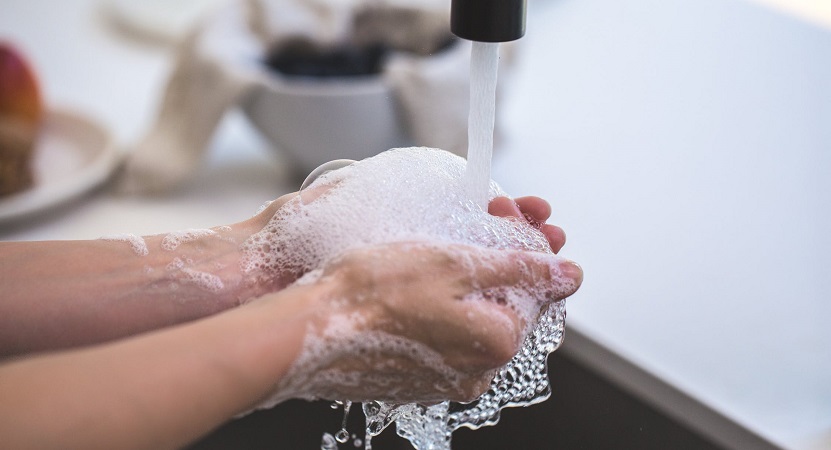It’s possible that your drugstore face wash is contributing to your active acne. It’s not your fault; you couldn’t have known! And you’re definitely not the only one who has been duped by big brands making bold claims. But, now that we’re here, we’d like to provide some broader perspective on the best face wash for acne so that your problem skin really can become a thing of the past. Read on!
In this article we discuss the following:
- Why is Face Wash Important for Acne?
- Keep it Hygienic
- Best and Worst Face Wash for Acne Ingredients
- Best Face Wash for Acne
- Best Face Wash for Oily Skin
- Best Face Wash for Dry Skin
- Best Acne Face Wash for Adults
- Best Face Wash for Acne Scars
- Best Face Wash for Hormonal Acne
- Best Face Wash for Whiteheads and Blackheads
- Best Drugstore Face Wash for Acne
- Best Acne Face Wash for Men
- Best Face Wash for Teenage Acne
- Best Clean Face Wash for Acne
Why is Face Wash Important for Acne?
To put it bluntly, face wash is important for acne because face washing is important for acne. The two go hand in hand, and the effectiveness of one depends entirely on the execution of the other.
But what is acne? “Acne, from the Greek word “akne” (meaning point), also known as acne Vulgaris, if full-blown over the face, back, and chest, is physically a disease where hair follicles are clogged with dead skin cells and oil from the epidermis,” says Danné Montague-King, founder of DMK Skin.
Any skin specialist will confirm that all individuals, acne or none, should be properly washing their face at least twice a day. Of course, if pimples are not a problem in your life then one can certainly get away with skipping a wash here and there, but people suffering from active acne need to maintain this routine as a minimum.
Not everyone was lucky enough to have left their problem skin with their teens. Acne is more prevalent in adults than ever before, particularly in women reaching their late 20s. Some studies are speculating it to have something to do with the ever decreasing quality of our food and air, due to high levels of pollutants. These can wreak havoc on and in the body, leading to imbalanced hormones that manifest as problem skin. Further, acne prone skin can be easily irritated, according to Dr Vikram Rajkomar from Pall Mall Medical.
Whatever the reason, adult acne is a lot less fun than teen acne, though we’re sure many teens will beg to differ. The older you get, the less resilient the facial skin becomes, and spots need a bit of extra help in their healing process.
This is where face wash comes in: a product which, when used properly, has the unique ability to balance the skin’s natural pH. Oftentimes face wash is one of the more underrated, overlooked products in a broader skincare regime. People tend to focus more on their exfoliators, essences and serums, viewing their cleanser as a less significant step in the routine.
There are also some individuals who look at their cleanser as the most important step in their skincare routine, so much so that they expect a face wash to solve all of their acne problems. This is also a skewed view, as no face wash can cure acne on its own; it can merely provide a more sanitary environment on the face through which healing can maybe start to take place.
A decent face wash is simply the first step in moving toward problem free skin. As Lorena Balensi, clinical esthetician and founder of Balensi’s Institute Skin Care & Spa, puts it, a great cleanser will help “rid your skin of makeup, excess oils, dirt, and sweat altogether.”
If you have problem skin, you can’t use just any old cleanser. You need a face wash for acne prone skin: one that is specifically formulated for your skin type (dry, oily, combination), and the kind of pimples you are experiencing.
This can feel like a process of elimination at first. For example, a face wash containing tea tree oil may agree with the problematic zones on your face, but cause irritation in the healthier zones. Thus, you might conclude that tea tree based products are maybe not the solution for you. Likewise, a product made from salicylic acid may significantly reduce breakouts in some, while triggering breakouts in others. The list goes on.
There are very specific acne-fighting ingredients out there, and brands who understand problem skin will formulate them in ways that are solution-oriented, and effective. We’ll take a closer look at each of these ingredients in a bit, as well as those that can actually contribute to triggering breakouts.
Keep it Hygienic
If there is one area where acne sufferers can’t afford to slack in, it’s hygiene. There is little point to setting up a thoughtful acne-fighting skincare routine if your external environment is not properly managed as well.
The spread of bacteria is a guaranteed trigger for breakouts. When we wash our face, we tend to overlook the importance of the towel or garment used to dry the skin afterward. Every time fabric is held to a surface, bacteria is transferred to and from both subjects.
The towel that hangs in your bathroom may look and smell clean, but there is micro bacteria taking refuge in the fabric every time your “clean” face comes into contact with it. When left to sit overnight, or over the period of a few days, the bacteria multiplies in the fibers of the fabric and is likely to be transferred back onto the face at the next time of contact.
Your face wash is helping to fight your acne, but your drying device is creating opportunity for more of it.
It goes without saying, then, that sharing a towel with family members is a big no-no for people with problem skin. Ensure that you dedicate a separate towel to facial drying, which is different from the one used for general bodily drying when exiting the shower.
If you use a microfiber cloth to remove makeup, or any kind of reusable wipes, the pattern of frequent washing need also be applied. Cotton pads also have the potential to house and spread unwanted bacteria; store them in an airtight container in a cool environment.
Similarly, the pillow that you sleep on can be a transporter of harmful, acne-inducing bacteria. People with severe acne are encouraged to change their pillow case quite frequently to help minimize the spread. If possible, sleep on one side of the pillow for one night, flip it over for the following evening, and then change it on day three. Keep at it until your breakouts and inflammation appear to be more under control.
Hygiene is everything when it comes to acne; an acne face wash can only do so much.
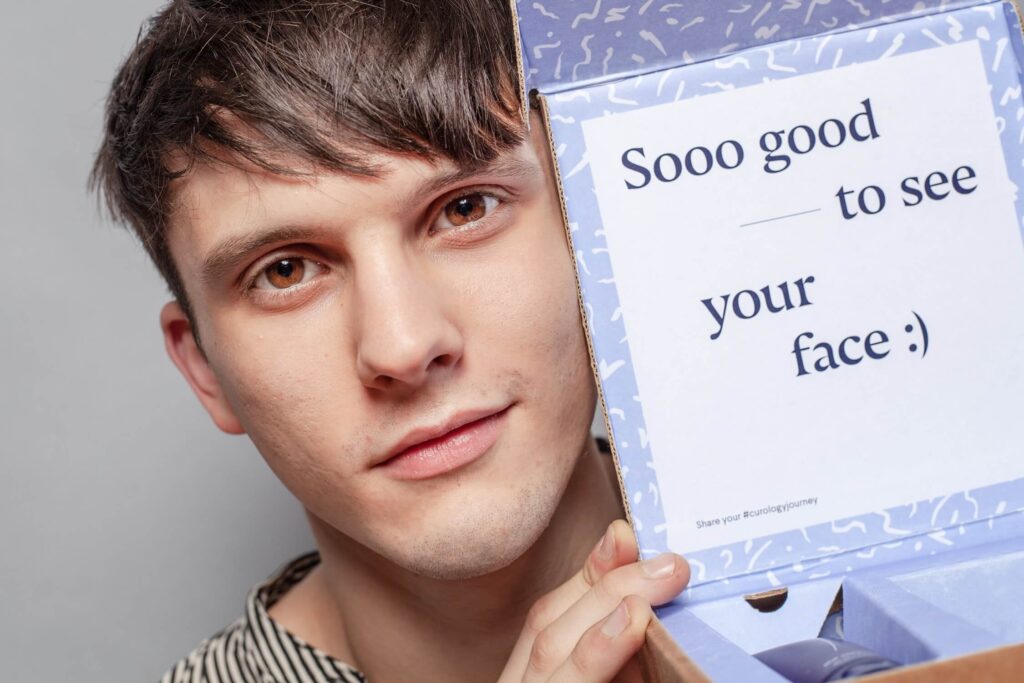
Best and Worst Face Wash for Acne Ingredients
The best acne wash for one person won’t necessarily be the best for the next. Acne is so easily reactive that it is largely impossible to specify what might aggravate a breakout and what might soothe it.
What we know for sure is that there are some ingredients that have been used widely in skincare products in the past that have almost always proven to be detrimental to people suffering from active acne. This extends from face washes, through to serums, primers, lotions and all other products used on the face.
Worst Ingredients for Acne
Silicones
These always sound harmless, but silicones are actually a variety of chemicals used to give skincare products that silky smooth feeling. Silicones make these products easy to spread, lather, and contribute to a satin-like skin texture once they are removed.
The illusion feels fabulous, but upon closer inspection these silicones are embedding deep within the pores of the face and can lead to breakouts after a certain amount of layers have been accumulated.
Types of silicone to look out for in face washes are dimethicone (silicone oil), cetearyl methicone (non-water soluble silicone) and cyclomethicone (synthetic silicone oil).
Sodium Lauryl Sulfate (SLS)
If your face wash is thick and foamy, it may contain SLS. This is an agent used in many shampoos, toothpastes and face washes as it gives the user the illusion that something good must be happening due to the vast amount of foam being created as they scrub.
We’re here to tell you that foam doesn’t equal effectiveness, and SLS is best avoided for people with problem skin. It’s a direct skin irritant, meaning it strips the face of natural oils and leaves the surface extremely vulnerable. Breakouts are therefore inevitable for some skin types.
Lanolin
Lanolin is actually harmless when it is offered in its purest form. Pure lanolin comes from sheep’s wool, and it is an extracted oil. Many face wash manufacturers make use of synthetic lanolin, as it is cheaper and easier to source.
Synthetic lanolin finds refuge in the pores, and sets up shop to stay for a while. Acne-prone skin is vulnerable to extensive breakouts as a result.
Isopropyl Myristate
Face washes contain this ingredient as a “soothing” agent. It may give this illusion on healthy skin, but acne-prone skin often receives it as a powerful comedogenic that leads to breakouts. You want to avoid this ingredient as much as possible, including in your serums, exfoliators and even certain face masks.
Alcohol
This one is a big no-no for people with problem skin. Alcohol is one of the most common ingredients in skincare products due to its very high potency. Once it hits the skin, it has a powerful drying effect that works wonders on oily zones.
In truth, what is happening is quite an intense molecular manipulation whereby the skin is being irritated by the compounds. The pores open up to absorb the alcohol, but the compounds are so irritating to said pores that breakouts are imminent.
Some feel that drying the skin out must be beneficial to acne that appears to be oily and moist. In truth, natural oils (such as sebum) on the skin have little to no effect on how severely we experience breakouts, as they are generally caused by free radicals, internal toxins (due to diet or medication) and hormonal imbalance.
Coconut Oil
Even natural skincare has its risks when it comes to acne-ridden skin. Coconut oil should be a red flag in skincare products if you are suffering from pimples and can’t seem to get them under control.
Though harmless to most individuals, coconut oil is comedogenic and likes to live inside of whatever open pores it can find. For people with no pore-space to spare, this can cause problems and one is likely to see an increase in breakouts.
Best Ingredients for Acne
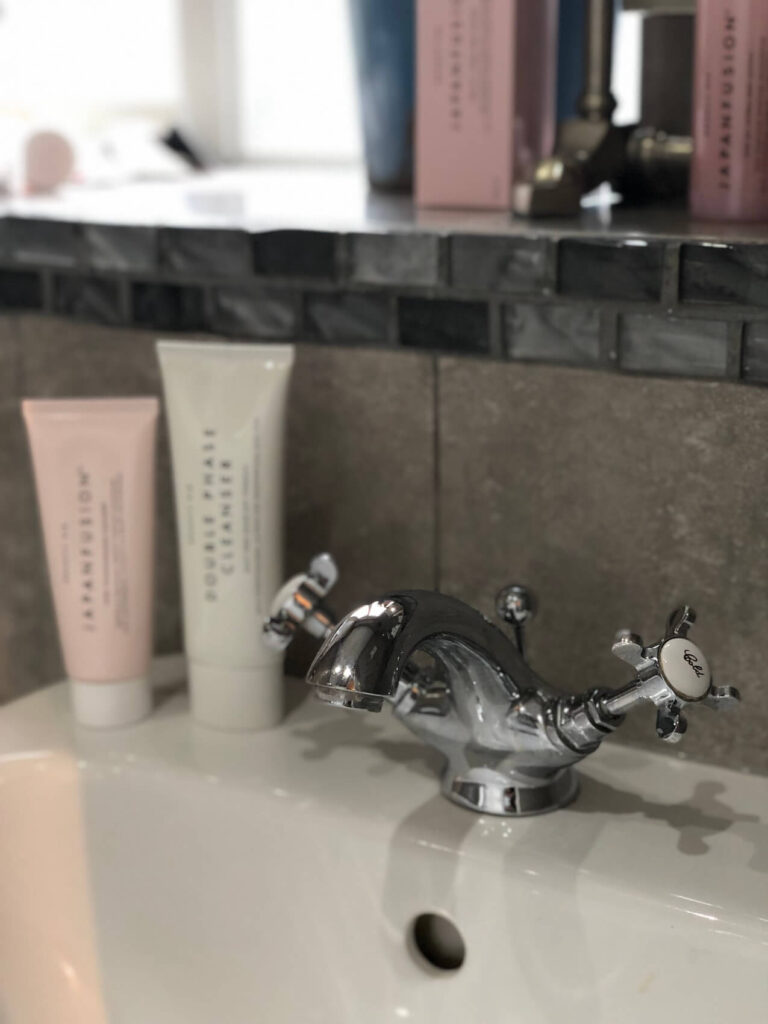
Benzoyl Peroxide
We’re big fans of this particular ingredient when it comes to fighting acne — in moderation! Different products will feature different amounts of this agent, which is typically sold as an over-the-counter item in pharmacies.
Benzoyl peroxide is effective in three major tasks that create a very difficult environment for acne to thrive in: it kills off bacteria, strips unnecessary oils, and exfoliates dead skin cells that would otherwise work to re-clog pores.
Benzoyl perxoide is great for inflammatory acne and can help prevent scarring, discoloration, or redness according to Dr. Sonya Johnson, a board-certified dermatologist.
A good benzoyl peroxide face wash is a must in the skincare routine of all individuals battling problem skin.
Sulfur
If your face wash makes you hold your breath while using it, it likely contains a generous dose of sulfur. Once you get past the smell, sulfur is instrumental in combating inflammation, which has made it a favorite ingredient for people suffering from both acne and rosacea.
Alpha-hydroxy Acids (AHAs)
For acne patients, AHAs in the form of glycolic and lactic acid are usually prescribed. These can feel intense, especially on sensitive skin, but they work wonders in stripping away the many layers of dead skin that would eventually lead to clogged pores, and in turn worse breakouts.
Clay
We’re advocates for clay in all forms of skincare, not just those targeting acne. This is one of the best natural treatments available for acne-prone skin. Clay has been used for centuries as a powerful anti-inflammatory agent; there is evidence to date its presence back to Aztec times, as early as 1521.
People battling pimples, blackheads, pustules and cysts can benefit greatly from an acne cleanser or face mask containing bentonite or kaolin clay.
Tea Tree
Similarly, tea tree is another natural ingredient that has been shown to be instrumental in the fight against acne. For one, it is highly antibacterial, eliminating the spread of pimple-causing germs upon contact.
Secondly, tea tree is an anti-inflammatory agent, and in the right dose can soothe the skin significantly. Studies have likened tea tree to benzoyl peroxide in effect, though people with eczema seem to experience irritation when using too much of this plant oil.
Topical Retinoids
Retinoids are derived from high concentrations of Vitamin A. Though potent, they have been shown to be allies to problematic skin when used correctly.
Retinoids have the power to exfoliate dead skin cells quite significantly, in turn paving the way for healing to occur in each pore. When introduced to acne-prone skin, however, retinoids can cause irritation, dryness and redness if the product is too highly concentrated for the individual in question.
It is always better to start with a low dosage retinoid, every other night. From here one can assess the effects and readjust the usage schedule as needed.
We also ask you to keep in mind that stronger ingredients doesn’t always equal better when it comes to acne, especially depending on your skin type. “Throughout the years, I have found that the best cleansers for acne are very gentle cleansers and not typically geared toward acne. This is because many of the acne cleansers on the market are very harsh and drying to the skin which can actually lead to acne and breakouts,” says Brittany Powell from The Blushing Bliss.
Best Face Wash for Acne
Best Face Wash for Oily Skin
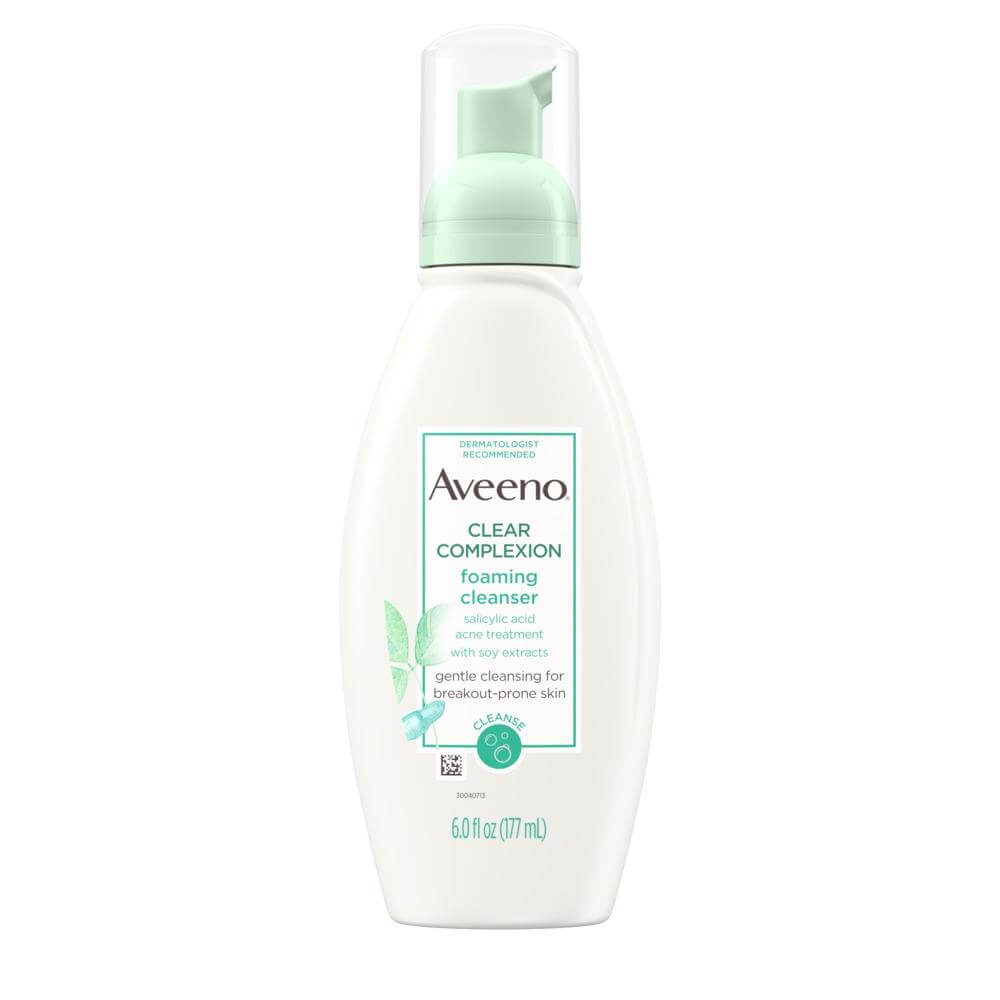
Aveeno Foaming Salicylic Acid Face Cleanser For Sensitive Skin
Salicylic acid is the best way for people with active acne to manage excess oils on the face. This is a much more gentle approach compared to using alcohol based products, and Aveeno’s face wash contains a low, controlled dose of the acid, also making it the best acne cleanser for people with sensitive skin.
If you’re unsure about what is the best face wash for acne, it’s usually best to start with one that works well with oily skin, even if you wouldn’t necessarily classify your face as oil-prone. These face washes, like this one by Aveeno, are always well balanced and offer thoughtful formulas that won’t overwhelm the skin at first use.
Best Face Wash for Dry Skin
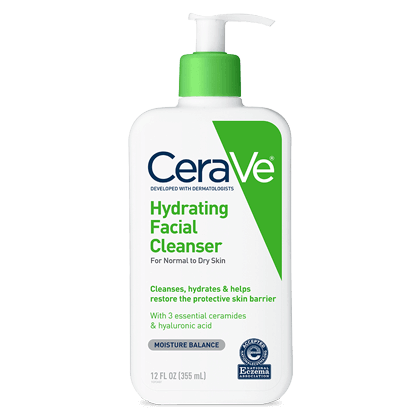
CeraVe Hydrating Facial Cleanser
Dry skin exhibiting acne is precarious territory when it comes to face wash. Gentleness is key, and too much, or too little, of a particular ingredient could cause mayhem in the pH balance of the affected zones.
If your face is experiencing dryness or flaking as a result of other acne-fighting medications or products, you need a face wash that won’t aggravate that situation. CeraVe has been the best facial cleanser for acne since science started uncovering the various triggers that lead to breakouts. The brand understands the delicate balance involved, especially for individuals who are using a variety of products to treat their condition.
“One of the causes of my acne as a teen and young adult was using chemicals that dried out my skin – my skin then responded by producing even more oil. But after a couple of weeks of using this cleanser alongside a salicylic acid treatment, my skin had cleared up, and was beginning to look smoother and less red,” says Rhiannon Moore from Evopure.
CeraVe’s face wash for acne is affordable and accessible; find it at your nearest drug or department store.
Best Acne Face Wash for Adults
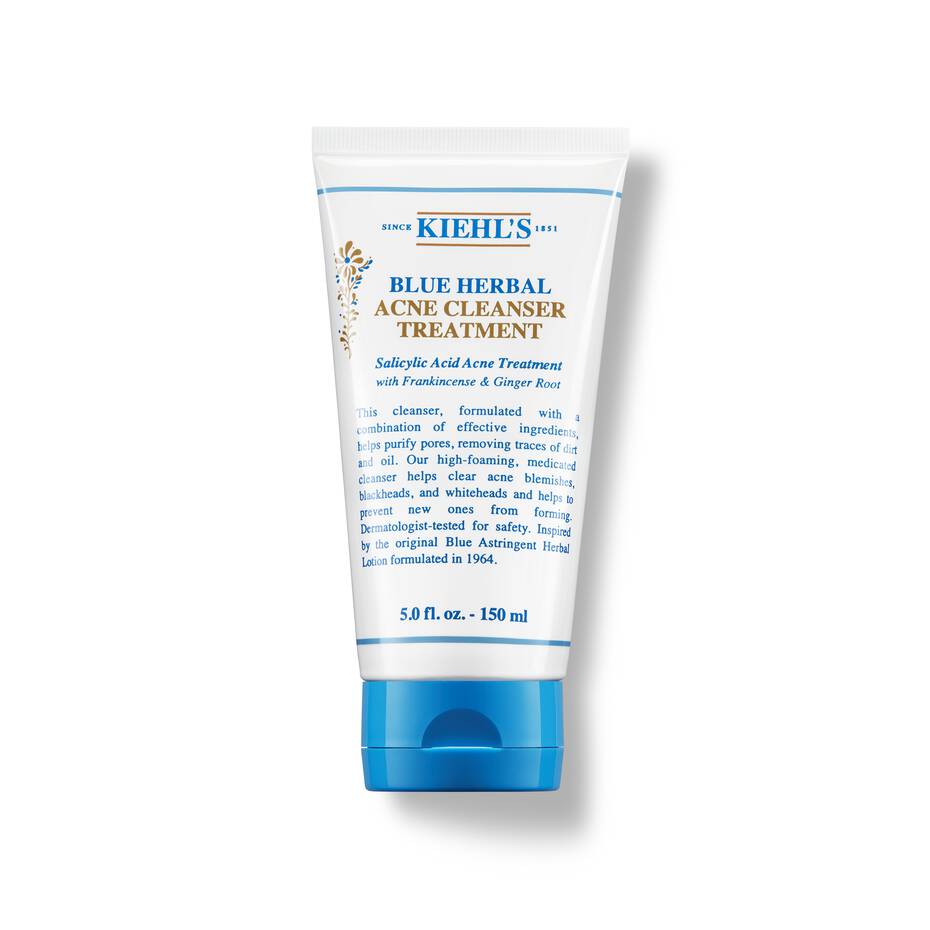
Murad Clarifying Cleanser
The Murad acne cleanser is a powerful face wash for adult acne. In just three days (dual use) it seems to bring the oils and pH of the skin back into balance, creating the prime environment to stop acne.
Pores seem to thrive with use of this face wash, as impurities are easily dissolved and kept at bay. This reduces the risk of breakouts in the long run.
This is one of the best face wash for acne and pimples, as it contains two different types of salicylic acid. The one works with immediate results, the other with long term treatment.
Best Face Wash for Acne Scars
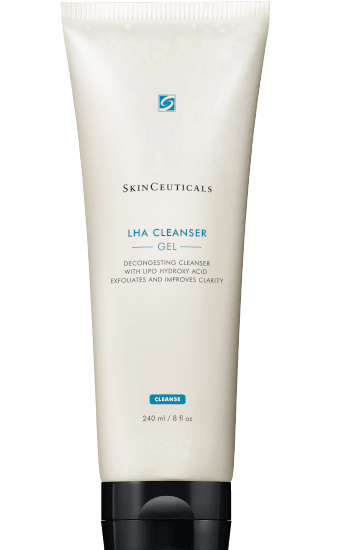
Skin Ceuticals LHA Cleansing Gel
Scarring from acne occurs when there is an inflamed blemish that breaks down the cellular tissue in the skin. When these cells become compromised, there is a loss of collagen and the affected area is unable to heal in ways it might usually elsewhere on the body.
In terms of acne scarring, what is the best face wash? We’d have to say it’s this very potent formula by Skin Ceuticals. Their cleansing gel not only works to alleviate active acne, but it also works on the visible signs of aging and lost collagen.
Using this as a daily face wash for acne will lead to fewer breakouts over time, as well as a reversal in both crater and raised forms of scarring left behind by previous acne. Some skin is simply more prone to acne scarring than others, so even if you’re not directly experiencing scarring as of yet, this is a great way to pre-treat the area and possibly reduce your risk of future occurrence.
Best Face Wash for Hormonal Acne
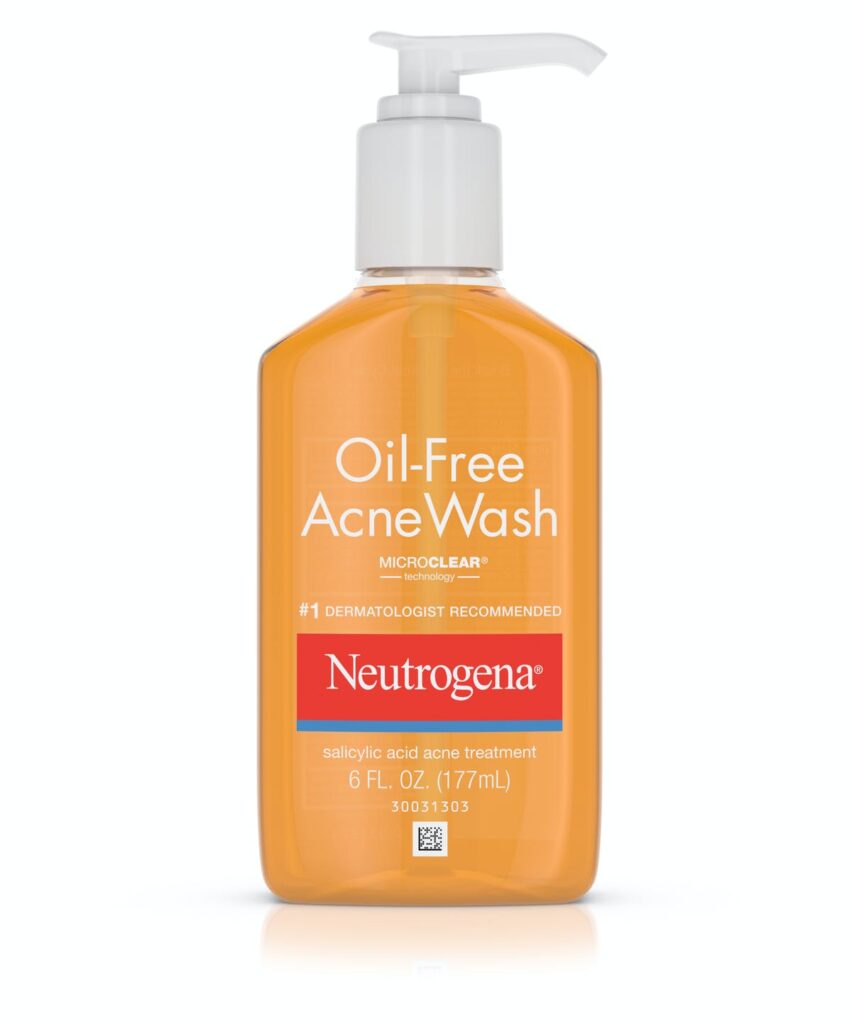
Neutrogena Oil Free Face Wash
Hormonal acne can be unpredictable, so you need a face wash that can work with the ebb and flow of the condition.
This is the Neutrogena oil free acne wash; it’s a gentle yet effective ally for daily use by all individuals, whether they are battling active acne or not. There are many things that can trigger hormonal acne; everything from one’s regular menstrual cycle to a change in diet. For this reason it’s important not to throw any unnecessary triggers into the mix, oils being one of them.
Oil balancing aside, the Neutrogena face wash is probably the most refreshing formula we’ve found. It’s light on the skin, and smells like all things good and natural. It’s possible to use the Neutrogena acne face wash on rotation with a face wash of stronger potency, depending on where your breakouts are at during different times of the month.
The oil free acne wash by Neutrogena is an affordable and accessible face wash. It generally retails for just over $5.
Best Face Wash for Whiteheads and Blackheads
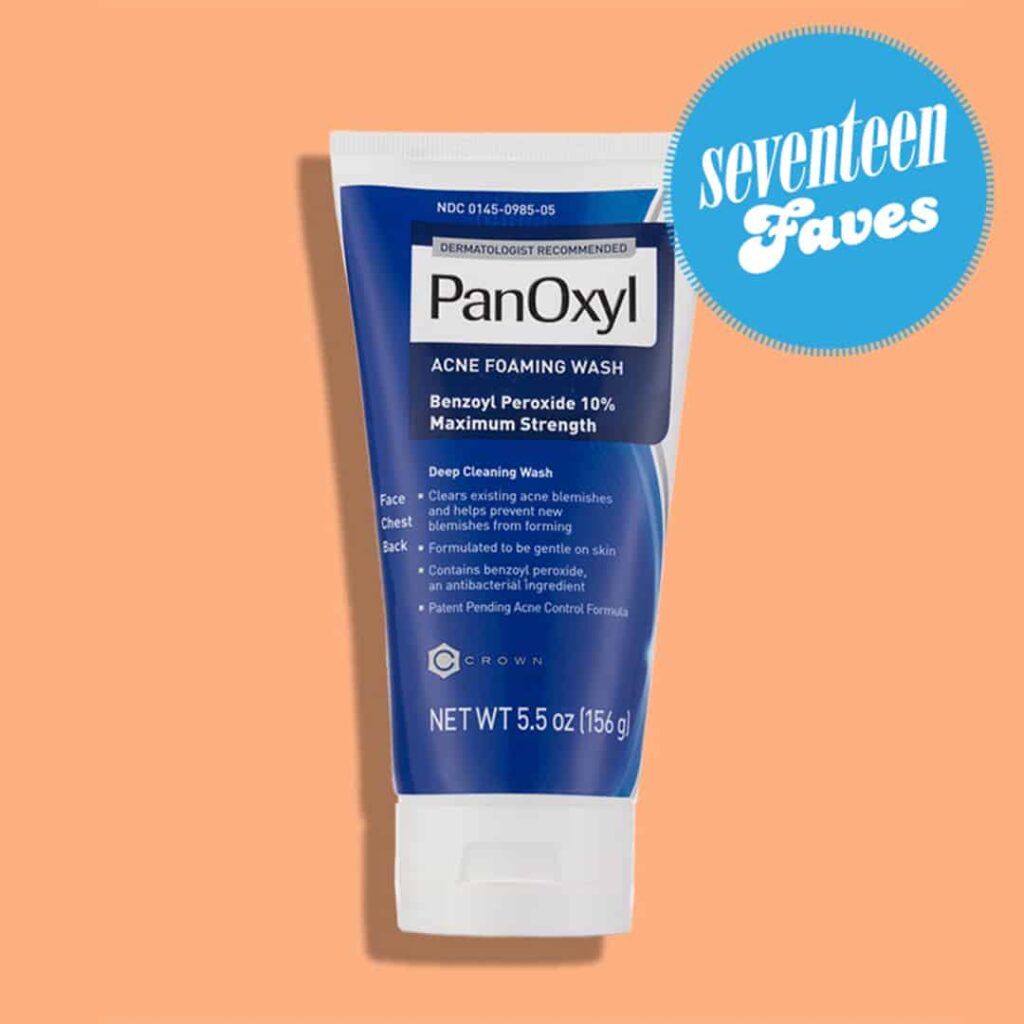
PanOxyl Acne Foaming Wash Benzoyl Peroxide
We mentioned that benzoyl peroxide is typically a regulated purchase, and it is rare to find it in high dosages without a doctor’s prescription.
PanOxyl has formulated an acne control face wash with the highest level of benzoyl peroxide available for over the counter purchase. At an astounding 10% benzoyl peroxide, this is a powerful agent in fighting active breakouts of both whiteheads and blackheads.
What’s more, they have kept the product quite low in cost. More and more dermatologists are recommending PanOxyl to patients who need an affordable solution to their problem skin.
Best Drugstore Face Wash for Acne
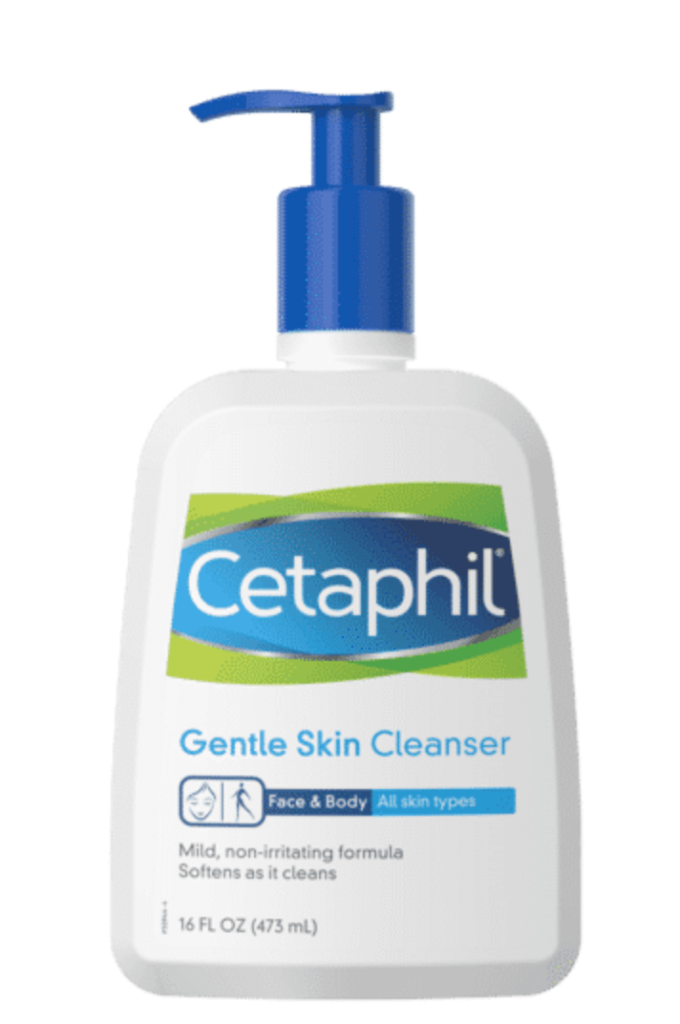
Cetaphil Skin Cleanser
Cetaphil is a known and respected brand amongst acne sufferers, especially those who are still coming out of high school.
It’s available at just about every drugstore and pharmacy, alongside a wide range of products all designed to bring problem skin back into balance.
What makes this product so unique is how gentle the formula is on even the most sensitive of skin. The eczema community reports having no reactions whilst using the face wash, even during severe flare ups.
This face wash can be substituted as a hand and body wash when needed, which is further testament to how gentle it is.
Best Acne Face Wash for Men
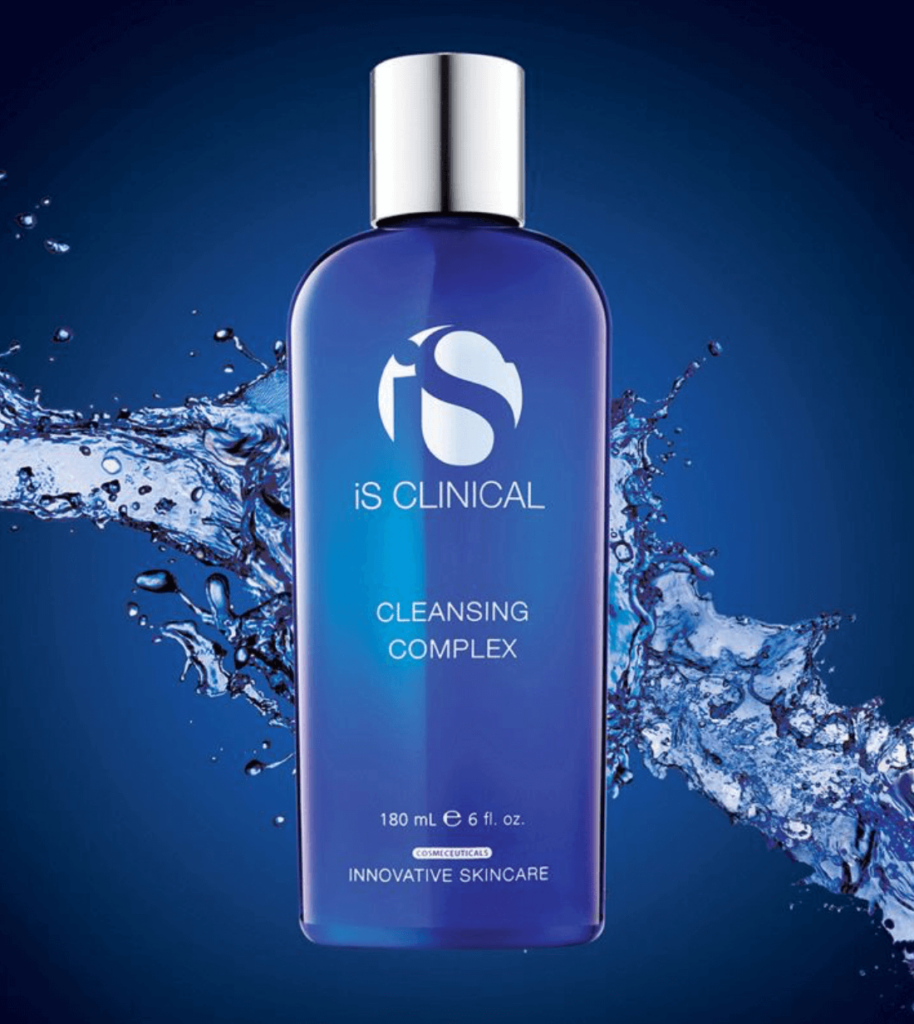
iS Clinical Cleansing Complex
Acne in adult men is generally less hormonal when compared to acne in women, with the occasional exception. For this reason, men need to invest in an all encompassing face wash of sorts; one with overall balancing and nourishing benefits.
The best acne face wash for men, in our opinion, is the targeted formula by iS Clinical. Their cleansing complex is concerned with deep clearing, followed by resurfacing, meaning that once the bacteria is eliminated, the general quality of the skin is improved as well.
It’s a non-drying face wash and it doesn’t leave behind any residue, which is great since studies show most men prefer to wash their face whilst in the shower and not in front of a mirror.
Best Face Wash for Teenage Acne
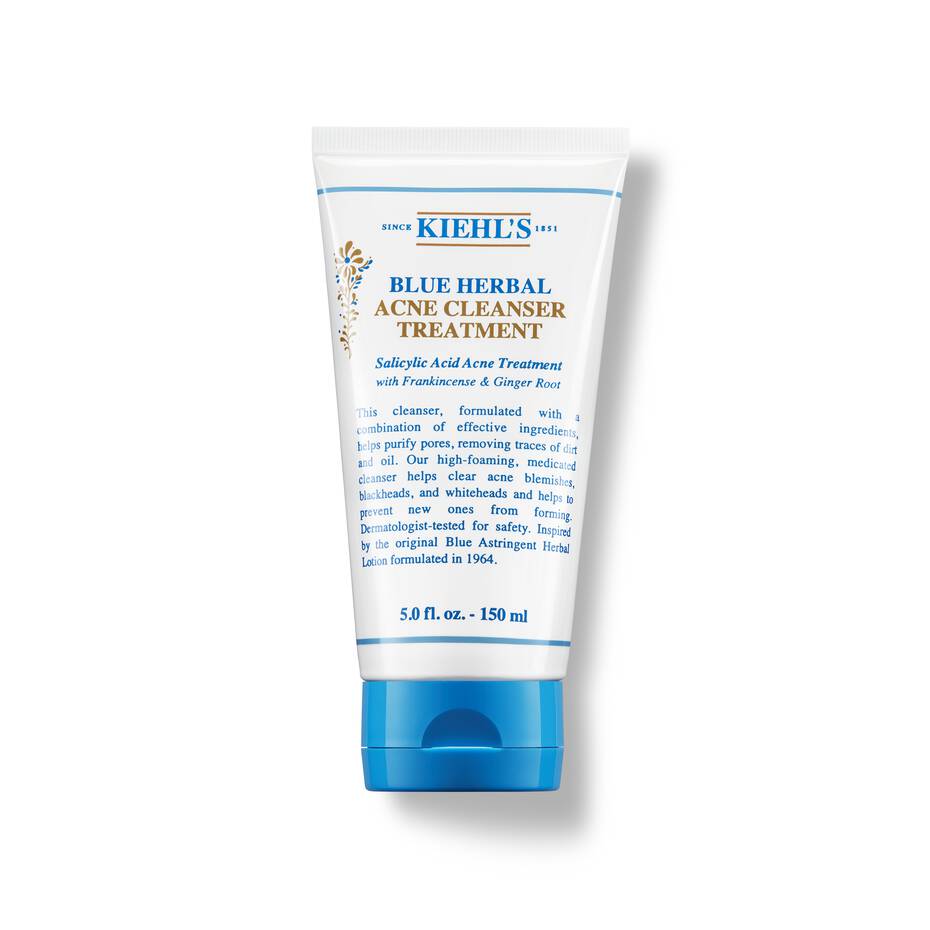
Kiehl’s Blue Herbal Acne Cleanser Treatment
As a teenager, the only thing worse than current acne is recurring acne! Acne that just won’t go away no matter how clean you try to be, or how frequently you try to treat it.
Kiehl understands these woes, and so they worked hard to bring us a face wash that has long term prevention in mind. The Kiehl’s face wash contains a generous dose of salicylic acid that works on active acne blemishes that pose threat of re-irritation.
Essentially, it is the more gentle, herbal alternative to a lot of chemical based products that try to burn away impurities instead of phasing them out. You’ll see better and better results over time; this is definitely a face wash that builds in momentum and can become a permanent part of your skincare routine.
Kiehl’s offers a variety of different cleaners, oil free toners, and moisturizers–the ultra facial cleanser is another favorite of Charlie Trevale Koonce.
Best Clean Face Wash for Acne
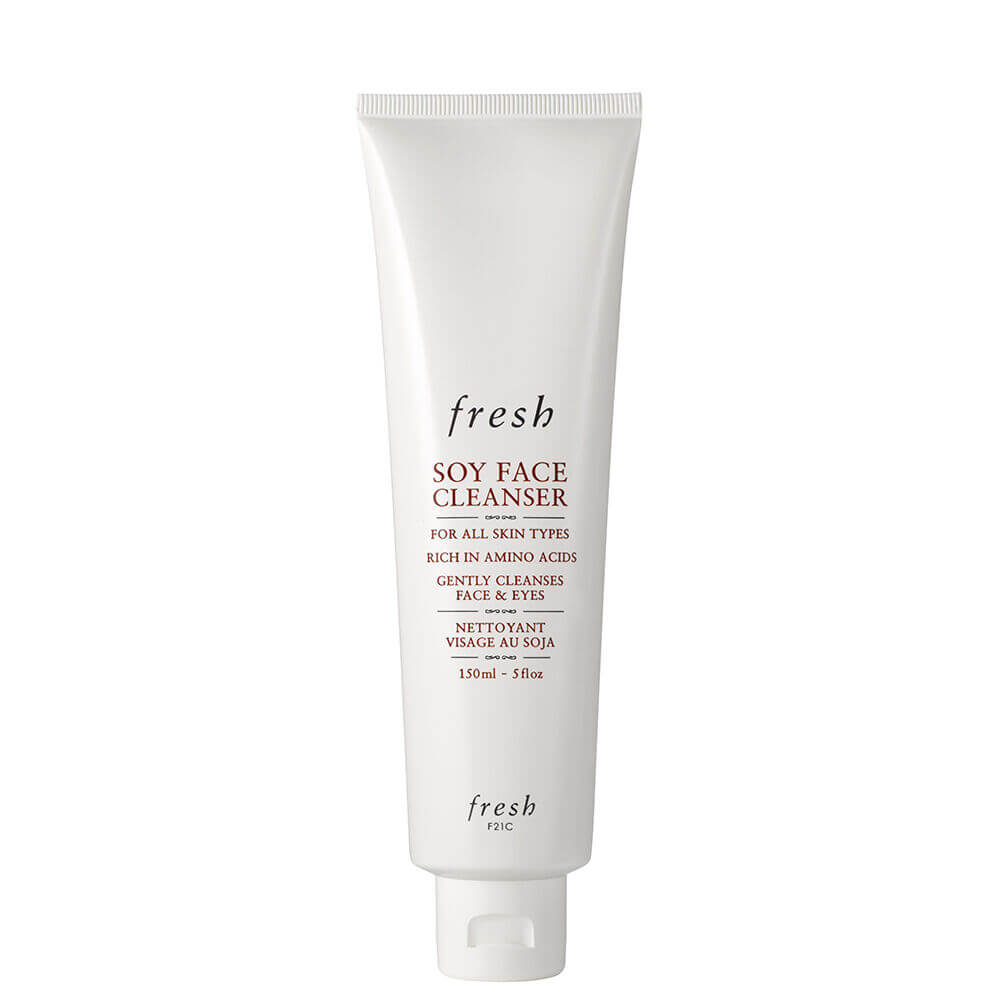
Fresh Soy Face Cleanser
Clean beauty is the way to go, in our humble opinion, and the soy face wash by US based skincare brand, Fresh, is a “fresh” take on combating acne naturally.
The face wash is made from natural ingredients, all with different healing properties. Some soothe, some target inflammation, some wipe out bacteria. Cucumber, aloe-vera and glycerin put the inflamed skin at ease, and rose-water works to rebalance the affected pores.
Because none of the ingredients are chemical, this is a great face wash for highly sensitive skin. It’s not a cheap purchase, but you’ll be supporting a brand who has dedicated much time and effort to creating an alternative, cleaner treatment to combating acne.
Did You Enjoy This Article?
If you enjoyed this article, you might also like our articles discussing the acne skincare products such as: Acne Patch for Pimples, Top 5 Vitamins for Acne, and Honey for Face.

